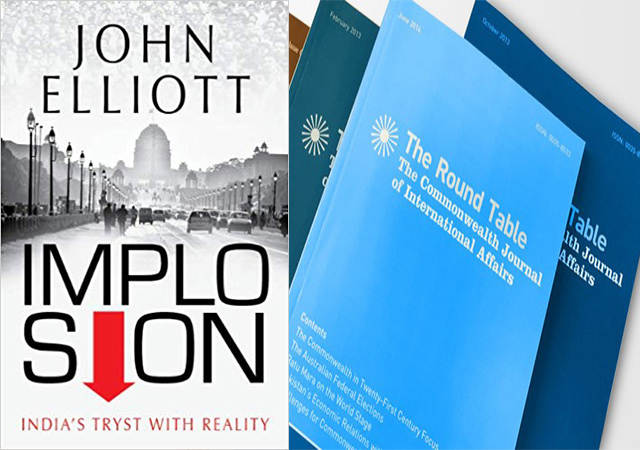
This is a detailed and extremely well-informed study of India’s growth and development. Very early in the book (p. 2), the author comments that ‘the country as a whole is failing and, in so doing, has lost the drive of fast economic growth that it enjoyed in the first decade of this century’. A little later he refers to the fact that India ‘has its own form of logic and many contradictions so that virtually everything and its opposite are true’ (p. 7).
The author states that in recent years there have been dramatic and extensive project failures that have compounded India’s traditional crab-like approach to decision-making and execution. The best-documented and most shaming events were the Commonwealth Games preparations in 2010, and a day in July 2012 when power supplies to half of India’s population were cut for up to eleven hours – said to be a world record (p. 49). The failings of successive governments, he notes, have led ‘to the development of judicial activism, where courts intervene in the running of the country’ (p. 51).
Elliott refers to vested interests in life as it is, and a strong resistance to change (p. 59). He notes, however, success stories, for example the metro, which ‘has done more to develop Delhi than any other initiative, opening up new areas and changing society and working patterns’ (p. 76). Reforms in 1991, he declares, opened up possibilities that had not existed for young, and older, Indians ‘to branch out into new lifestyles, entrepreneurial adventures and careers’ (p. 111).
Information technology has played a special role because ‘it brought a much-needed “can do” confidence in the early 2000s to the business sector that had been bedevilled by India’s image of poor-quality production . . . .call centres have become stepping stones to urban success for young people who may otherwise have been stuck in their villages for life’ (p. 118).
The author comments that in India women are often treated with disdain (p. 144). He also notes that ‘in some of the worst excesses of India’s often vicious caste system’ so-called honour killings take place (p. 148). He is critical of the Gandhi family’s ‘automatic role at the top of the dynasty’ (p. 253).
Following a reference, later in the book, by Jawaharlal Nehru, to Hyderabad as‘a microcosm of Indian culture’ (p. 335), he comments that now the city ‘has become a symbol of what is wrong with India. It embraces dynastic political ambitions based on personal greed and the lauding of companies that have grown fat on fraudulent land and other deals’ (p. 335). He comments that old traditions and attitudes have been swept aside ‘in the rush for instant riches’ (p. 338).
In a chapter on ‘Uncertain Convictions,’ the author comments that it is not enough for India to stay silent. ‘With its depth of experience in international issues such as terrorism, religious fundamentalism, poverty and climate change, it needs to make its voice heard with reasoned argument and leadership. Only then, with the world welcoming a new, strong, independent voice, will it gradually win the international recognition and status that it craves’ (p. 390). There is discussion of India’s relations with China, and with Pakistan. There is also discussion of a, new, relationship with the United States of America, which the author describes as ‘a positive development – provided India maintains its independence as a friend and occasional partner, but not an ally’ (p. 442).
Many other issues are looked at, including a failure to improve the country’s defence and armed forces. There is, however, important recognition of the government’s main success in the broad area of the economy: ‘to introduce more formal structures that began to reduce the informal, corrupt tangle of systems and regulations’ (p. 489).
As I noted at the beginning of this review, the book is extremely thorough and well informed. I have to comment, however, that it is a hard read. There are numerous – far too many – quotations, and far too many footnotes. That said, reading it is worth the effort.
Bill Kirkman, Wolfson College, Cambridge.
Implosion: India’s Tryst with Reality, by John Elliott, India, Thomson Press (India) Ltd, 2019.



